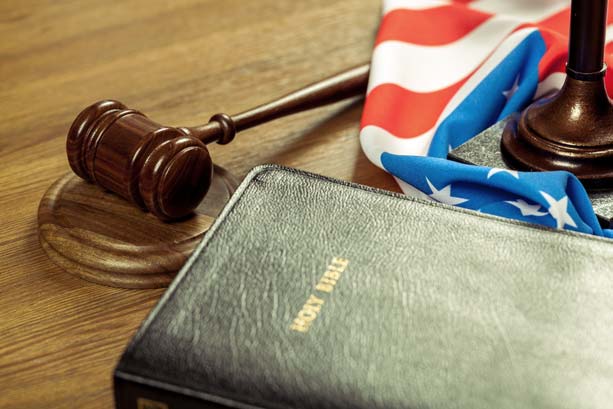
The new office, called the Conscience and Religious Freedom Division, is seen by many as a win for conservative religious groups that complained President Barack Obama's administration did not prioritize religious freedom concerns. Critics, however, worry that the language is broad and could lead to discrimination.
HHS did not introduce any new rules, but the new office will review complaints medical professionals under existing laws.
In a news conference in Washington Thursday, acting Health and Human Services Secretary Eric Hargan said many religious medical professionals were forced to provide services or referrals that violate what they believe.
The new enforcement initiative represents the administration's latest effort to elevate religious liberty claims when such personal beliefs come into conflict with priorities like access to medical care. Conservative groups, particularly those opposed to abortion, welcomed the move while critics warned it could lead to discrimination on the basis of sex as well as gender identity and sexual orientation.
"We are saying, with the launch of this division, you do not need to shed your religious identity, you do not need to shed your moral convictions to be a part of the public square," Roger Severino, who directs HHS' Office of Civil Rights, said at the announcement ceremony Thursday morning. Severino said the office has received 34 complaints since President Donald Trump took office when there were only 10 complaints under Obama.
"Conscience protections" have become a flash point in culture war debates, especially about contraception and LGBT rights, in recent years. In a high-profile battle with the Obama administration, the Little Sisters of the Poor, a group of nuns, objected to HHS' mandate that employers must cover employees' contraception. In October, HHS introduced rules that would allow businesses or nonprofit organizations to object on religious or moral grounds and obtain an exemption.
Many religious liberty watchdog groups on the right see the new HHS office as a big win, according to Asma Uddin, founder of AltMuslimah.com and a fellow at the Initiative on Security and Religious Freedom at UCLA.
"It's about implementing the religious liberties that are already there," she said. "It's significant in contrast to the years of litigations."
A concern among many is that religious freedom is becoming a partisan issue dependent on whoever sits in office, said Michael Wear, who did religious outreach for Obama. The Trump administration, he said, has done little on religious freedom issues that will have much lasting change.
"The next administration could scrap this office their first day in," Wear said. "It's not necessarily putting [religious conservatives] in a better situation when they're not in a favorable position politically."
HHS' Severino co-wrote a 2016 report for the conservative Heritage Foundation expressing concern from an Obama-era HHS proposal that doctors could be liable if they refuse to provide or pay for such hormones for gender-transition reasons.
Under Obama, HHS replaced a rule from President George W. Bush's term that was interpreted as allowing medical workers to opt out of a broad range of medical services. Obama's narrower version left in place only long-standing federal protections for workers who object to performing abortions or sterilizations. HHS also kept the Bush rule's formal process for workers to file complaints.
Trump nodded to "conscience protections" in his executive order in May 2017 that was lauded by religious leaders in a Rose Garden ceremony, but many conservative religious freedom advocates didn't think it went far enough in changing actual policy.
Some religious groups praised the office, which is calling explicitly for these kinds of "conscience protection" cases.
"I am thankful that HHS recognizes how imperiled conscience rights have been in recent years in this arena and is actively working and leading to turn the tide in the other direction," Russell Moore, president of the Southern Baptist Convention's lobbying arm, said in a statement.
Helen Alvare, a professor at George Mason University's law school, said the idea that health-care workers would have conscience protections is not new. It goes back, she said, to when President George Washington allowed Quakers to abstain from fighting in the Revolutionary War.
"This isn't a get-out-of-jail free card," Alvare said. "Their objection has to be balanced with state interests, as always."
These kinds of protections were cited in Roe v. Wade, the Supreme Court's landmark case that decided women have a constitutional right to an abortion.
"Neither physician, hospital, nor hospital personnel shall be required to perform any act violative of personally-held moral principles," the court's decision states.
Several existing laws include protections for health-care workers, including the Church Amendment of 1973, which gave health-care providers in certain federally funded programs the right to object to abortion or sterilization, and sometimes to any procedure, on moral or religious grounds. The Coats-Snowe Amendment, which was intended to prevent governmental discrimination against medical programs that declined involvement in abortion training, was signed into law by President Bill Clinton in 1996.
In Thursday's announcement, several government officials cited the Weldon Amendment, which prevents governmental discrimination against health-care providers that decline to perform, refer for or pay for abortions.


 Contact The Editor
Contact The Editor
 Articles By This Author
Articles By This Author